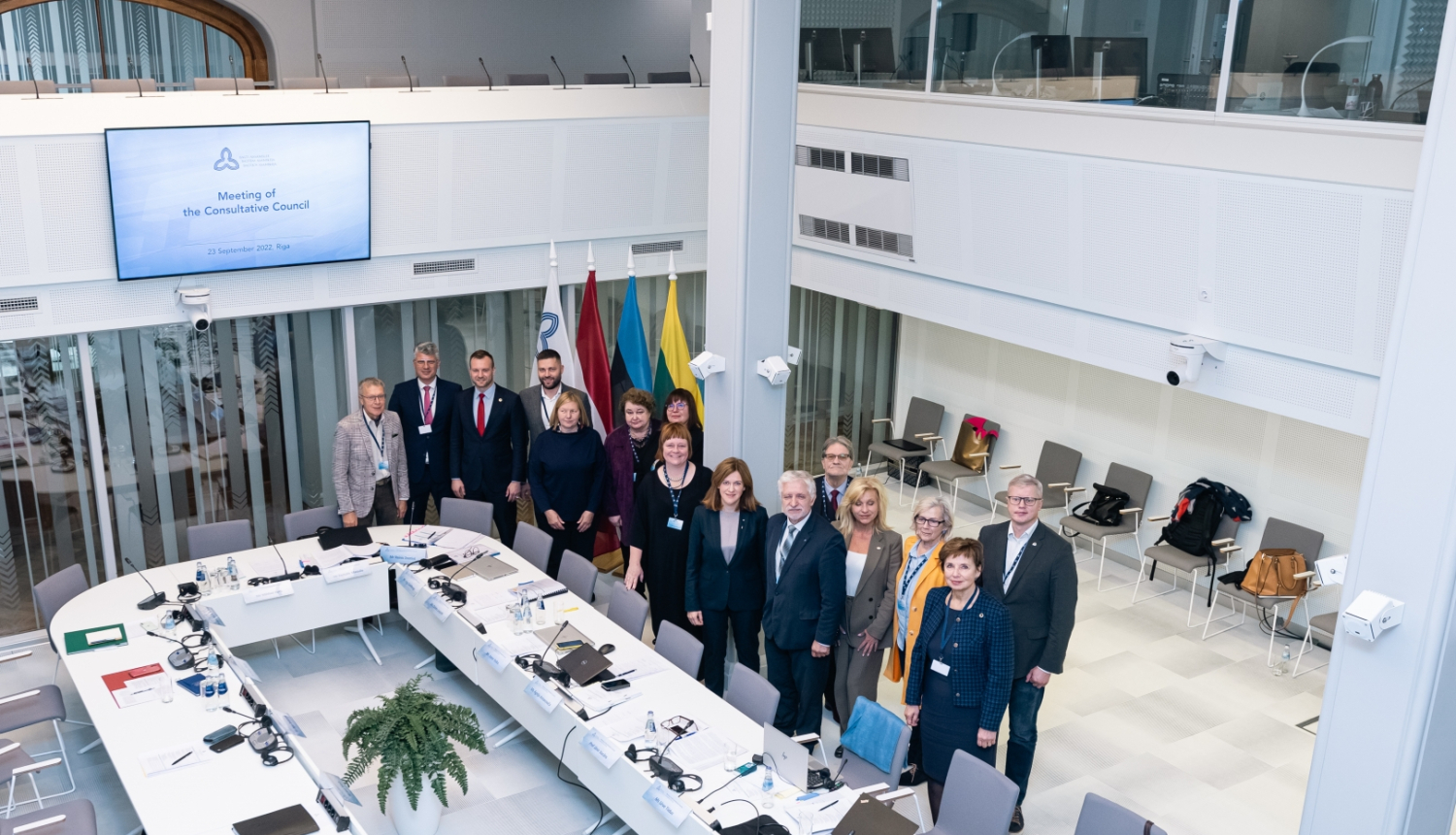On 23 September 2022, the Parliamentary Secretary of the Latvian Ministry of Foreign Affairs, Zanda Kalniņa-Lukaševica, met with the Consultative Council of the Baltic Assembly. During the meeting, the participants discussed what has been achieved during Latvia’s presidencies of the Baltic Assembly and the Baltic Council of Ministers in 2022 and considered further plans for the enhancement of cooperation between the Baltic States.
The Parliamentary Secretary underlined that the Baltic States’ cooperation had been of great importance in shaping a strong and united European and a transatlantic response to Russia’s aggression and war launched against Ukraine. The Baltic States are closely coordinating their policy and action at the regional and international level.
“Since Russia’s invasion in Ukraine, the Baltic States jointly did everything possible to support Ukraine and to put maximum diplomatic, political and economic pressure on Russia. Against the backdrop of a changed security environment, the Baltic cooperation proved invaluable and very effective. Through concrete proposals, we jointly spearheaded EU sanctions policy against Russia,” Zanda Kalniņa-Lukaševica said.
Since the beginning of the war, the EU has adopted unprecedented seven packages of restrictive measures that cover all major sectors of Russian economy. A political agreement has been achieved on the eighth sanctions package, which is currently under preparation.
“We are each other’s closest allies. Naturally, Baltic cooperation formats were extensively used to brainstorm and agree on coordinated approaches to the strengthening of the visa regime. The current situation proves the timeliness of that decision. It is highly important for our security situation,” the Parliamentary Secretary said.
As the Parliamentary Secretary characterised the implementation of the presidency priorities, she underlined the strategic importance of regional energy and transport projects under current geopolitical conditions, while also accentuating the significance of climate policy at the regional level.
Background information
The Baltic Assembly is an institution for parliamentary co-operation among Latvia, Estonia and Lithuania established in 1991. The Consultative Council of the Baltic Assembly comprises the Presidium of the Baltic Assembly and the chairpersons and vice chairpersons of the Baltic Assembly’s standing committees. The Baltic Assembly has five standing committees: Economics, Energy and Innovations Committee; Education, Science and Culture Committee; Natural Resources and Environment Committee; Legal Affairs and Security Committee; and Welfare Committee.
The Baltic Council of Ministers, established in 1994, is an institution for governmental co-operation between Latvia, Lithuania and Estonia. The Baltic Council of Ministers is charged with ensuring the continuity of co-operation at the executive level of the Baltic States, as well as between the governments and the Baltic Assembly.
In 2022, Latvia holds presidency of the Baltic Assembly and the Baltic Council of Ministers.




